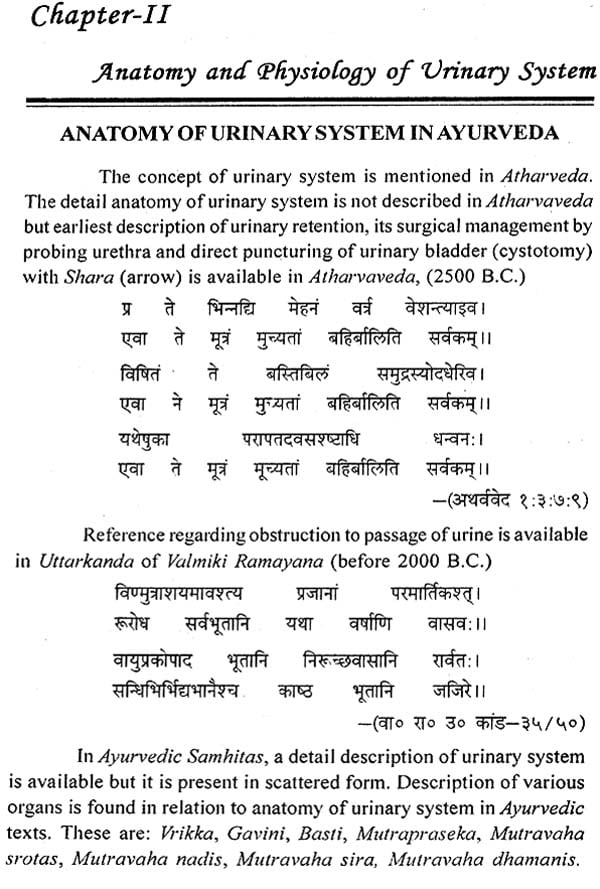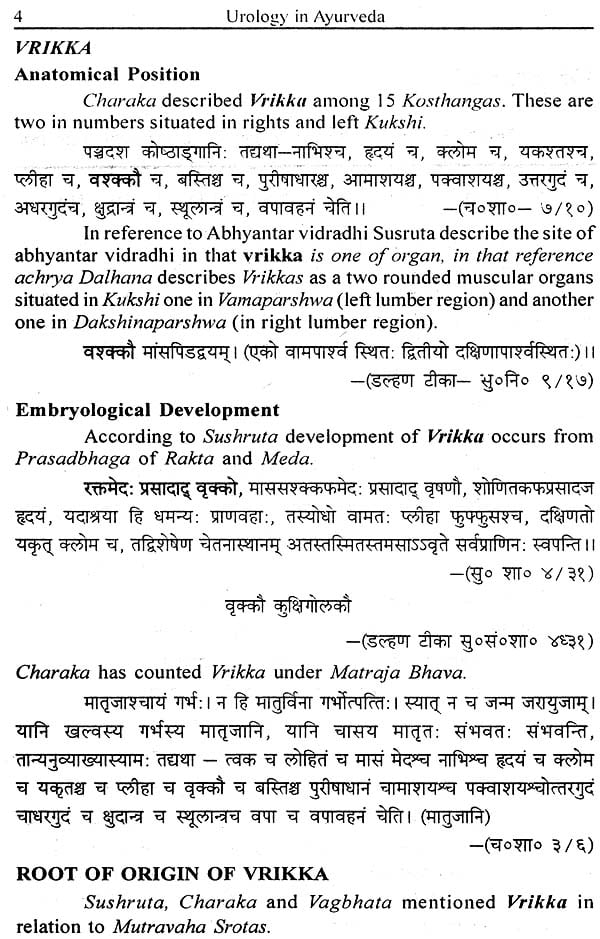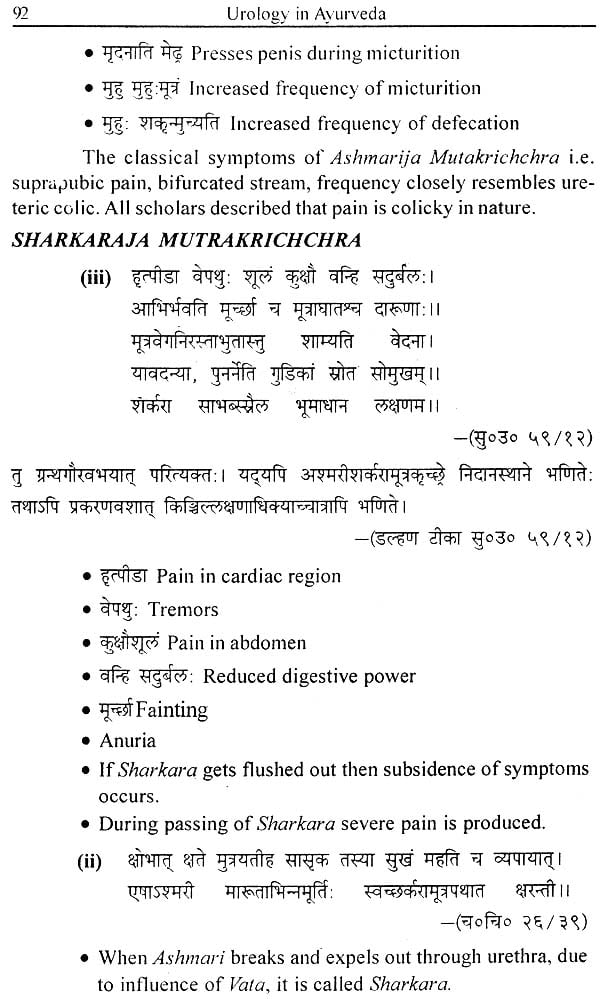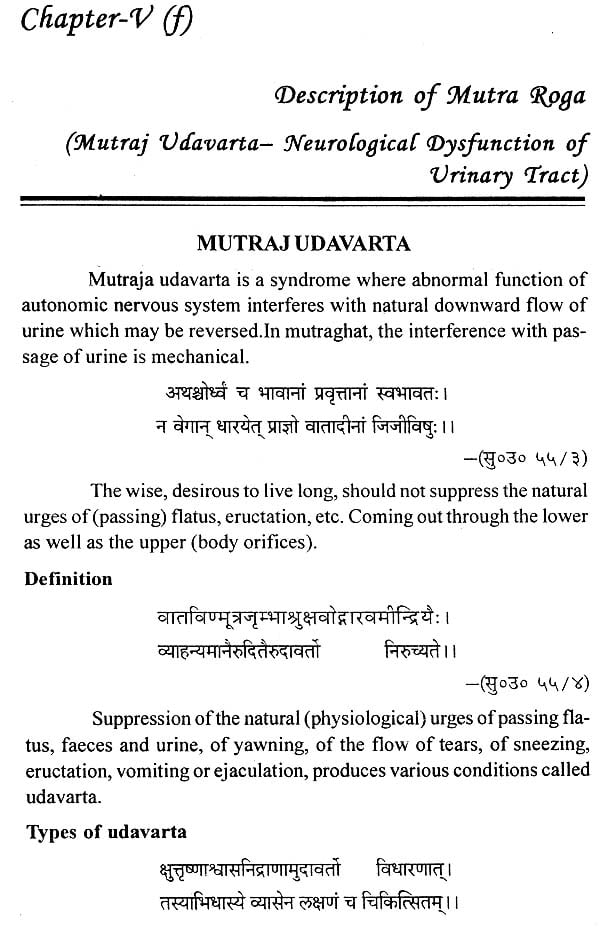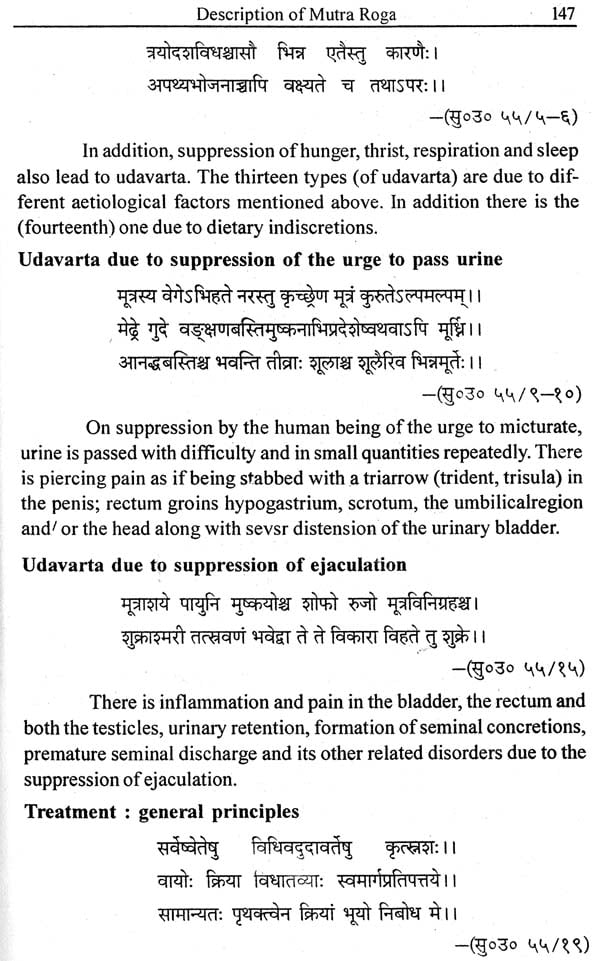
A Comprehensive Study of Urology in Ayurveda
Book Specification
| Item Code: | NAQ542 |
| Author: | Dr. Bishnu Kumar & Dr. Jyoti Singh |
| Publisher: | Chaukhambha Prakashan |
| Language: | Sanskrit and English |
| Edition: | 2018 |
| ISBN: | 9789386735485 |
| Pages: | 176 |
| Cover: | PAPERBACK |
| Other Details | 8.50 X 5.50 inch |
| Weight | 200 gm |
Book Description
From Cradle to Coffin, the journey of Life is interspersed with challenging some small, some great, some we try to bypass some we endeavour to contest and yet other bewilder our imagination into pain-less numbness. This probably is what No one can deny that Ayurvedic approach towards the disease is holistic. Numerous therapies modali-ties have been advocated by our Acharyas in the management of each and every disease, but their efficacy needs re-establishment by means of thorough and intensive researches. The earliest description about the afflictions of urinary tract can be traced as far back as "Atharva Veda" is no wonder. A comprehensive description regarding Mutraghata and its treatment with the use of Loha-Shalaka give us an account of knowledge that our ancestors had with regards to the Anatomical —Physiological — Pathological & Therapeutic aspects of the human body.
According to Ayurveda Basti is one of the three vital organs in the body, the other two being Hridaya and Nabhi. It is the most important organ maintaining the homoeostatic by regulating the excretion of the metabolites and waste products, i.e. Dosha, Dhatu and Mala.
Vegavarodha, i.e. suppression of natural urges is an important cause of various diseases. Ayurveda states that suppression of maturation is one of the most important causes of the disease of urinary tract. With progressive urbanization and inadequate toilet facilities, this cause has assumed greater importance.
In present and attempt to made a sincere effort to acquaint the reader with the wealth of knowledge available in Ayurvedic literature on the important subject of urology. The literal meaning of the texts has been adhered to as far as possible and the basic concepts are presented in the original form. The relevant Sanskrit stanzas together with references are also given.
According to Ayurveda body physiology is maintained by Tridosha Theory i.e. Vata, Pitta and Kapha. Likewise the functions of Mutravahasrotas (urinary system) is also regulated by Apanavayu one among the five types of Vayu.: Obviously any derangement ofApana Vayu leads to the pathology of the urinary system: So, the treatment principle is to correct the vitiated Apana Vayu, thereby attaining the normal physiology of the urinary system. This controls the symptoms of the Mutravaha Shrotas (urinary system). Basti therapy is one of modality of Pancharma which is specially used for pacification of Vayu.
Urology in modern India has made emphatic strides and has established itself as a significant tour be force in the global urology arena. In that monumental progress we need to humbly remember the legacy of our illustrious pioneers in urology in our motherland whose ancient urology practice and teaching of unparalleled ingenuity still re-main valid in principle in the contemporary context. Still the time these no work is done to compile all these urinary disorders, so its need to compile them to remain update.
By considering and analysis above discussion the study is an attempt to compile the scattered urological disorder in Brihattrayee i.e. Charaka Samhita, Sushruta Samhita, Astanghridaya, Astangsamgraha and correlate them with modern urinary disorders.
One can easily appreciate the wisdom of Ayurvedic physicians who have meticulotisly described the various urological conditions and their-treatment.
| Chapter I | Introduction | 1-2 |
| Chapter II | Anatomy and Physiology of Urinary System | 3-25 |
| Chapter III | Examination of Urine (Mutra Pariksha) | 26-37 |
| Chapter IV | Classification of Mutra Roga | 38-43 |
| Chapter V | Description of Mutra Roga | |
| a. Mutraghata (obstructive Uropathy) | 44-83 | |
| b. Mutrakrichahra (Dysuria) | 84-94 | |
| c.Ashmari (Urinary Calculi) | 95-136 | |
| d.Tuni-Bastishula (Renal Colic) | 137-140 | |
| e.Mutraj Udavarta | 141-145 | |
| f. Mutraj Udavarta (Neurological Dysfuction of Urinary Tract) | 146-154 | |
| Chapter VI | Systemic Diseases Presenting Urinary System | 155-165 |
| Chapter VII | Medicines Acting on Urinary System | 166-171 |
| Chapter VIII | Properties and Therapeutic Uses of Urine | 172-176 |
